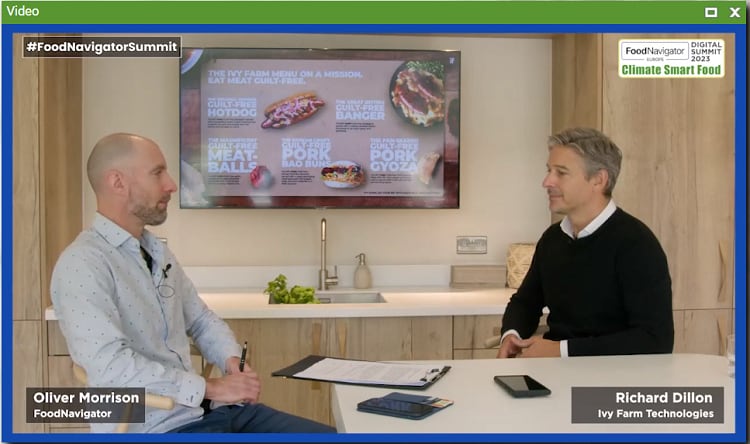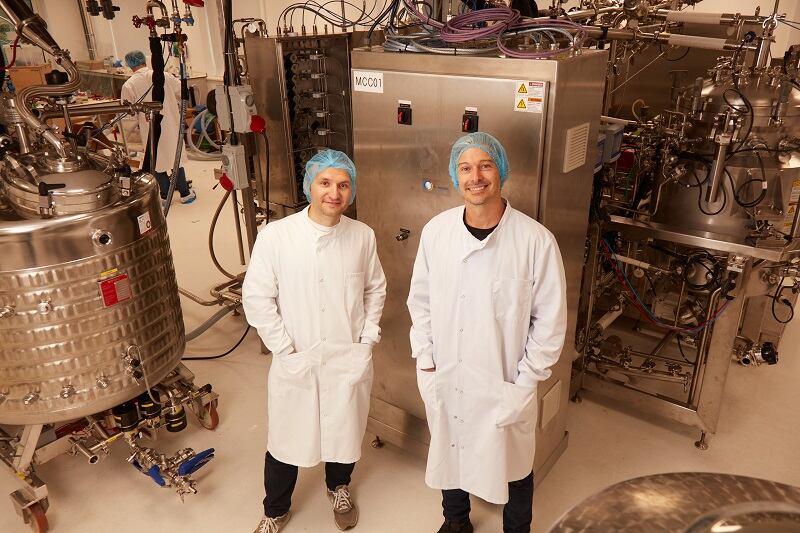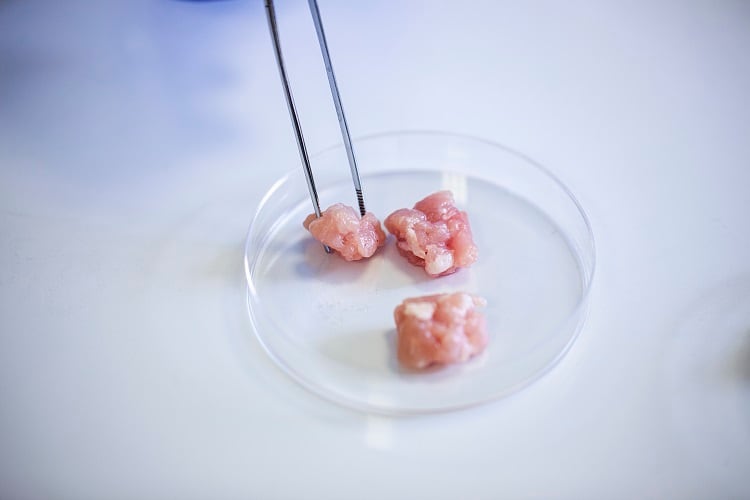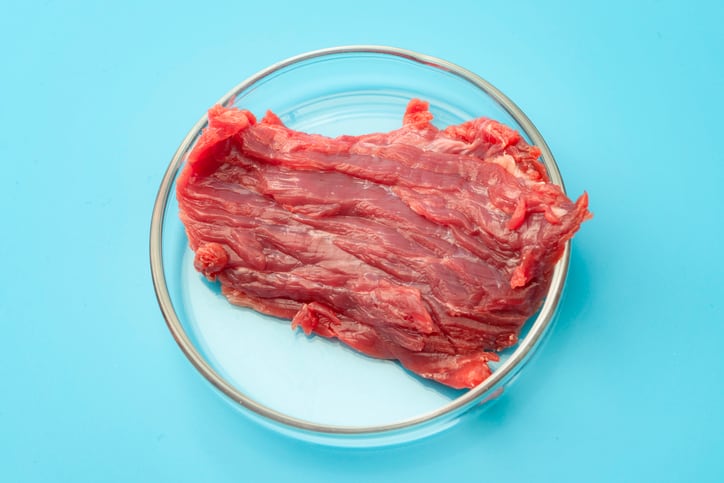FoodNavigator visited the start-up, a spin-out of Oxford University, as part of its Climate Smart Food digital summit.
Ivy Farm CEO Richard Dillon revealed the company submitted a dossier to the FSA earlier this year for its plans to supply cultivated meat to food companies and restaurants in the UK.
But regulations urgently need to be overhauled in the UK to allow this industry to flourish, he added. The company is therefore also working with regulators in other jurisdictions.
“Countries like Singapore and the United States, where cultivated meat has already been approved, are benefitting from a clearer, more agile and flexible regulatory pathway which supports their domestic cultivated meat industries,” he said. “Quite simply, companies in those countries will attract more funding from investors as there.”
“We would like our pilot plant approved in the US in 2024, and if I could wave a magic wand, we would hope that the UK is as fast or as close behind,” he added. “If not, it just forces our hand for the second part of scale up. If the UK are dragging their feet on regulation at that point and we can't get it over the line, we are prepared to build our first production plant in another country. We've done the design and costings with a US-based partner.”
Meanwhile, Dillon insisted cultivated meat offers a more environmentally way of satisfying the world's appetite for meat.
“Cultivated meat can give the majority of consumers the taste and nutrition they love, yet without the negative impact to the environment associated with industrial farming. From producing it anywhere in the world, to using land and resources more sustainably.”

Revealing how the product is made, he explained: “Cultivated meat is real meat, only it’s made differently. The process involves one of the most natural processes on the planet - cell replication. In fact, the process is similar to the way in which popular cultured or fermented drinks and foods, such as beer or kefir, are made.
“We start by taking a cell sample from a farm raised animal, a very small amount, about 1cm in size. Our unique technology allows us to identify the 0.001% of cells that can grow efficiently outside the animal, and we train those cells to grow in large fermenters. We feed these cells the perfect blend of nutrients that they need to grow, such as starch, lipids, vitamins, amino acids. Then, in just 2 weeks, we have delicious and nutritious meat to harvest. We grow pure muscle and pure fat cells and blend them together into mince, that makes tasty burgers, meatballs and gyozas.”
The environmental evidence?
Peer-reviewed research shows cultivated meat could cut cause up to 92% less greenhouse gas emissions and up to 94% less air pollution, and use up to 66% less water and 90% less land than conventional beef. It can also be made without antibiotics, helping to reduce the risk of antimicrobial resistance.
A recent pre-print study out of the University of California, Davis, however, has claimed lab-grown meat is not inherently better for the environment thanks to highly energy-intensive production processes.
“The premise of this study was based on using existing supply chains to feed the cells. This is the pharmaceutical supply chain where nutrients are purified to a very high level – it’s that purification step which costs a lot of energy.
The truth is we can’t use that supply chain, it’s too expensive. We are using food grade and feed grade nutrients that don’t need that purification process.”
Opportunities opened by cultivated meat’s growing ecosystem
Finding these food-grade nutrients, meanwhile, opens opportunities for the food sector to supply ingredients to cultivated meat companies, he revealed.
"We are working to map out cultivated meat as part of a bigger eco-system where we can take things brewer’s spent grain to produce some of the more expensive elements that goes into our media. A well-designed eco-system could basically make it like an upcycling proposition, and very compelling from a sustainability point of view.”





